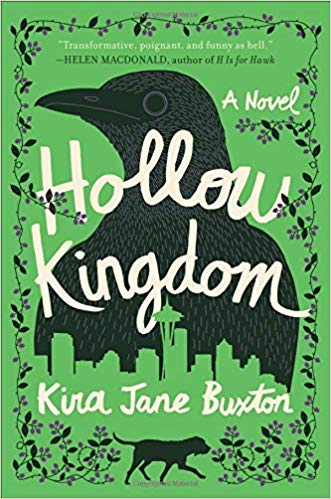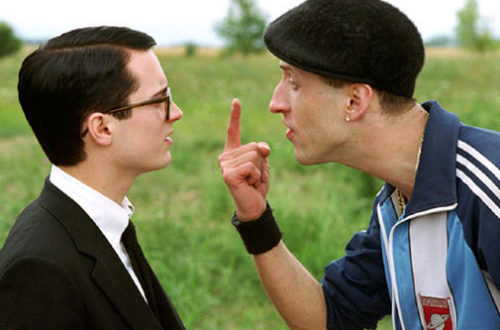Every once in a while, you take a chance on a book and it doesn’t pay off. That’s just the nature of the business of reading. If you only read the writers and genres you know, there’s no fun in that. Plus, you’ll never expand your horizons, which sort of defeats the purpose of reading in the first place.
Still, relying on reviews (especially those of the Amazon variety), lists, and word of mouth will only get you so far. Sure, taste is subjective, but I can’t count the number of books I’ve started after hearing positive recommendations only to wonder “What were those reviewers thinking? Did they lose a bet? Are they being blackmailed? Should I call the authorities?”
Happily, Kira Jane Buxton’s Hollow Kingdom is not one of those books. I don’t really remember where I got the recommendation from, but I think it was a list of excellent science fiction and fantasy books of 2019. That would make perfect sense, because this novel certainly belongs on that list.
Hollow Kingdom is about the zombie apocalypse, and it’s told from the perspectives of the non-human survivors. The main narrator is a foul-mouthed but good-hearted domesticated crow named S.T. (for Shit Turd), who, along with his best friend, a sharp-nosed bloodhound called Dennis, set out on a post-apocalyptic mission to preserve the legacy of the MoFos (one of the animal kingdom’s names for humans).
When I started the book, I thought I knew where the story was headed, and I was fine with that direction. Happily, I was wrong. Buxton takes an interesting premise and turns it into something more entertaining and emotionally resonant than many traditional narratives. Hollow Kingdom is smart, poignant, and wickedly funny, and S.T. is one of the most vividly drawn and hilarious protagonists (crowtagonists?) I’ve ever read. I laughed, I cried, and I laughed and cried.
Much like Watership Down did for me with rabbits, Hollow Kingdom has forever changed the way I think of animals, especially crows. Also, in the same way similar works have done, it goes far beyond the premise that animals might have the kind of social and interior lives portrayed there, though how cool would that be?
Beyond that entertaining and endearing idea, Hollow Kingdom underscores the all-too-real truth that non-human animals do indeed have lives–rich ones, in fact–and just as we depend on them, they rely on us even more. Humans are supposed to be the grownups on this planet, so we should damn well act like it.
There are a thousand other compliments I’d love to bestow on this novel, but most of them would spoil the fun for you, the potential reader, so I’ll just leave it at this: Hollow Kingdom is a delight, and you should read it.
(Note: Be sure to also read Buxton’s end notes and the author interview, wherein she talks about the inspirations for the novel’s premise and some of its animal characters. Those insights are almost as much fun as the story itself.)





